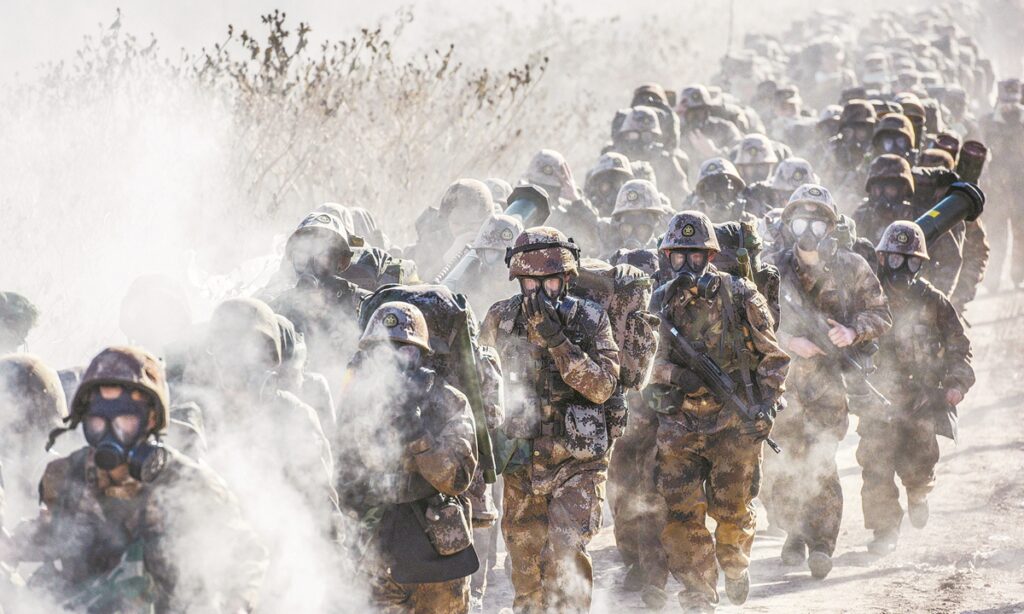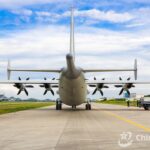The picture shows soldiers with gas masks assigned to a company of a combined brigade under the PLA 82nd Group Army in field training exercise. Photo:China Military
By Liu Xuanzun
The PLA Tibet Military Command recently invited 22 private arms companies and held a review session over their products to be deployed in plateau warfare and border defense, China Central Television (CCTV) reported on Friday.
Many types of rotor-wing and fixed-wing aerial drones, including the Blowfish A2 helicopter drone developed by Zhuhai-based Ziyan UAV and the CW-25 vertical takeoff and landing fixed-wing drone made by Chengdu-based JOUAV, were inspected by the PLA, according to the report.
They are specially designed for use in high elevation, low temperature regions, with the aim of conducting unmanned missions including material supply, border defense and management, surveillance and armed reconnaissance along the border of Southwest China’s Tibet Autonomous Region, the CCTV report said.
Anti-drone products were another focus of the review session, as an electronic countermeasure unit under the PLA Tibet Military Command tested a type of anti-drone gun that can detect, locate and jam hostile drones.
Advanced logistics support equipment was also displayed, including portable solar chargers, smart warm clothing made of graphene, portable oxygenators and a multifunctional dining vehicle. They are intended to provide warmth, supplemental oxygen and hot food to soldiers serving in the hard conditions of Tibet, CCTV reported.
The event shed light on the direction of equipment development with plateau characteristics, and will effectively enhance the Chinese troops’ unmanned combat and logistics support capabilities in Tibet, the report said.
Large, state-owned companies tend to prefer mass-producing standardized products, but border defense troops sometimes have the need to operate specially designed weapons and equipment that are needed in smaller numbers, a Chinese military analyst who asked not to be named told the Global Times on Sunday.
Many mid- and small-sized private companies have the know-how to develop and manufacture products that meet the special requirements for border defense, and they could give the PLA more choices at lower costs, the analyst said.




